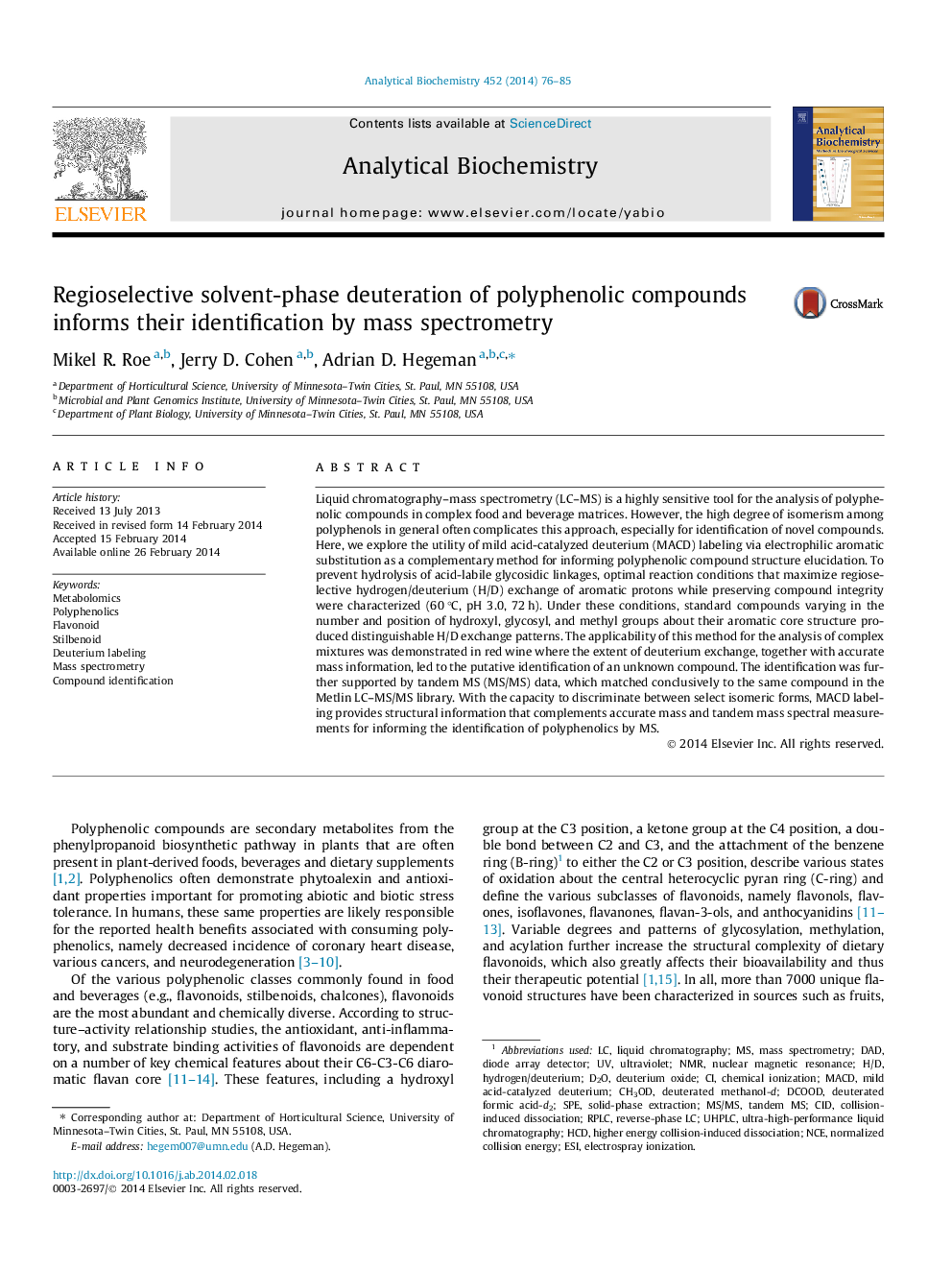| Article ID | Journal | Published Year | Pages | File Type |
|---|---|---|---|---|
| 1173642 | Analytical Biochemistry | 2014 | 10 Pages |
Liquid chromatography–mass spectrometry (LC–MS) is a highly sensitive tool for the analysis of polyphenolic compounds in complex food and beverage matrices. However, the high degree of isomerism among polyphenols in general often complicates this approach, especially for identification of novel compounds. Here, we explore the utility of mild acid-catalyzed deuterium (MACD) labeling via electrophilic aromatic substitution as a complementary method for informing polyphenolic compound structure elucidation. To prevent hydrolysis of acid-labile glycosidic linkages, optimal reaction conditions that maximize regioselective hydrogen/deuterium (H/D) exchange of aromatic protons while preserving compound integrity were characterized (60 °C, pH 3.0, 72 h). Under these conditions, standard compounds varying in the number and position of hydroxyl, glycosyl, and methyl groups about their aromatic core structure produced distinguishable H/D exchange patterns. The applicability of this method for the analysis of complex mixtures was demonstrated in red wine where the extent of deuterium exchange, together with accurate mass information, led to the putative identification of an unknown compound. The identification was further supported by tandem MS (MS/MS) data, which matched conclusively to the same compound in the Metlin LC–MS/MS library. With the capacity to discriminate between select isomeric forms, MACD labeling provides structural information that complements accurate mass and tandem mass spectral measurements for informing the identification of polyphenolics by MS.
